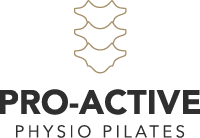
23 Oct Why do my knees hurt?
Knee pain…..it’s pretty common and often generates the panic of arthritis and fear.
It’s easy to then go into a protective mode of well i can’t do anything now as I need to save my knees from further damage……not true!
Panic not, often we get knee pain and noises because of a variety of biomechanical issues that can be rectified with specific exercises. Avoiding using you knees won’t help, and could make it worse.
Most of my patients who come with knee pain present with patelofemoral joint issues, that is the knee cap and surrounding area. The knee cap is within the quadriceps muscles and sits within a groove on the thigh bone (femur) and it glides smoothly if in the correct position. However, muscular imbalances cause altered orientation and positioning of the patella resulting in pain and inflammation from gliding incorrectly. In some cases there can be an issue with the actual structure of the groove.
The result of a tilted, rotated or deviated patella is pain from activities such as going up and down steps, sitting with your knees bent, squatting and kneeling because of the altered load on the joint. It will also cause pain with running and in the gym.
The possible causes could include:
– Weak quads, mostly on the inside
– Tight structures on the outside such as the ITB
– Weak glutes
– Altered foot biomechanics which then easily influence the knee
There is no manipulation or correction that can be done to your knee to improve this! Exercise is the key.
Treatment consists of a tailored exercise program (specifically ensuring position and technique) to correct the altered biomechanics including strengthening, proprioception and stretching work. Most of the time this takes about 6-8 weeks of completing the exercises independently, at which point patients are back to running and other activities with no further issues.
There are of course other issues that cause knee pain that aren’t quite so easy to fix such as ligament and cartilage tears. At the clinic these can be assessed, an MRI performed and referral to one of the orthopaedic specialists done if required.
If you have any further questions, please contact us.
